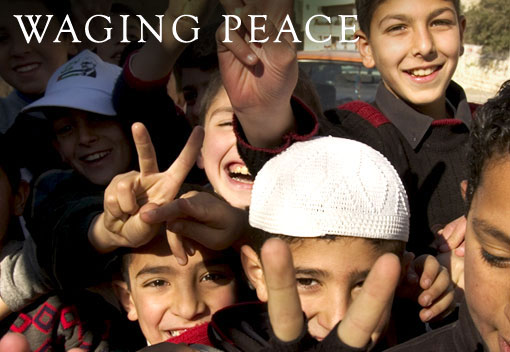
The Carter Center Peace Programs:
Peace With Justice

The Carter Center’s peace programs strengthen freedom and democracy in nations worldwide, securing for people the political and civil rights that are the foundation of just and peaceful societies.
Amid the trend toward greater democracy, The Carter Center has become a pioneer in the field of election observation, monitoring more than 70 national elections to help ensure that the results reflect the will of the people.
Beyond elections, the Center seeks to deepen democracy by nurturing full citizen participation in public policy-making and by helping to establish government institutions that bolster the rule of law, fair administration of justice, access to information, and government transparency.
A culture of respect for human rights is crucial to permanent peace. The Center supports the efforts of human rights activists at the grass roots, while also working to advance national and international human rights laws that uphold the dignity and worth of each individual.
When democracy backslides or formal diplomacy fails, the Center offers mediation expertise and has furthered avenues for peace in Africa, the Middle East, Latin America, and Asia.
Since 1982, The Carter Center has shown in more than 70 nations that creating a world at peace is a very possible journey, one step at a time.
Peace Programs include:
- Democracy Program: working to create inclusive democratic societies and empower citizens through election observation, international standards for democratic elections, and activities to strengthen rule of law and access to justice.
- Human Rights Program: elevating the voices of human rights defenders internationally, intervening on behalf of victims of human rights abuses, and strengthening international and grass roots systems to advance and protect human rights.
- Conflict Resolution Program: monitoring and mediating conflicts, implementing peace agreements, strengthening rule of law and justice, facilitating dialogue to ease tensions, and helping regional organizations build capacity for conflict resolution.
- Americas Program: working to improve regional cooperation, prevent crises, and deepen democracy in the Western Hemisphere; helping citizens exercise their political and social rights; and increasing government transparency and citizens’ access to information.
- China Program: promoting political reform by improving local election practices; sponsoring Web-based forums on elections, self-governance, and access to information; and expanding channels for civic participation in rural villages.
Current peacemaking initiatives touch all corners of the globe and include:
- Observation of the December 2008 presidential and parliamentary elections in Ghana
- Projects to strengthen rule of law and access to justice in post-conflict Liberia and the Democratic Republic of the Congo
- Efforts to thwart corruption and advance citizen oversight of government in Latin America, Africa, and Asia by supporting access to information laws
- Forums to strengthen the voices of human rights defenders worldwide and a push for stronger international protections for human rights through the United Nations
- A collaborative project with the United Nations and other election observation groups to develop a methodology for observing electronic voting worldwide and develop standards for democratic elections
- Creating avenues for dialogue about border issues to improve relations between Ecuador and Colombia.
The Carter Center Democracy Program
The Carter Center has observed 73 elections in 28 countries.
Now more than ever, citizens around the world participate in elections to hold their governments accountable, and more governments than ever recognize democratic elections as essential to establishing their legitimate authority. Yet one democratic election does not change the political culture of a society overnight. Long-term efforts are necessary to build an inclusive democratic society that respects human rights and laws, administers justice fairly, and encourages full citizen participation in government.
Observing Elections
The assessments of organizations that monitor elections in emerging democracies are central to determining whether an election is considered genuinely democratic. The Carter Center has been a pioneer of election observation, monitoring more than 70 elections in Africa, Latin America, and Asia since 1989 and forging many of the techniques now common to the field.
The Center must be invited by a country’s election authorities and welcomed by the major political parties to ensure it can play a meaningful, nonpartisan role. Long before election day, observers analyze election laws, assess voter education and registration, and evaluate fairness in campaigns. When votes are cast, the presence of impartial observers deters interference or fraud and reassures voters that they can safely and secretly cast their ballots. Before, during, and after an election, the Center’s findings are shared in-country and reported to the international community through public statements.
Developing Standards for Democratic Elections
The Carter Center—with the U.N. Electoral Assistance Division and the National Democratic Institute—recently played a key role in producing the Declaration of Principles for International Observation, which established professional standards for election observers. Launched in 2005, the Declaration has been endorsed by more than 30 observer organizations. Now the Center is spearheading efforts to identify and foster consensus on common international standards for what constitutes a genuinely democratic election. A related project is creating a method for observing electronic voting.
Source cartercenter.org




